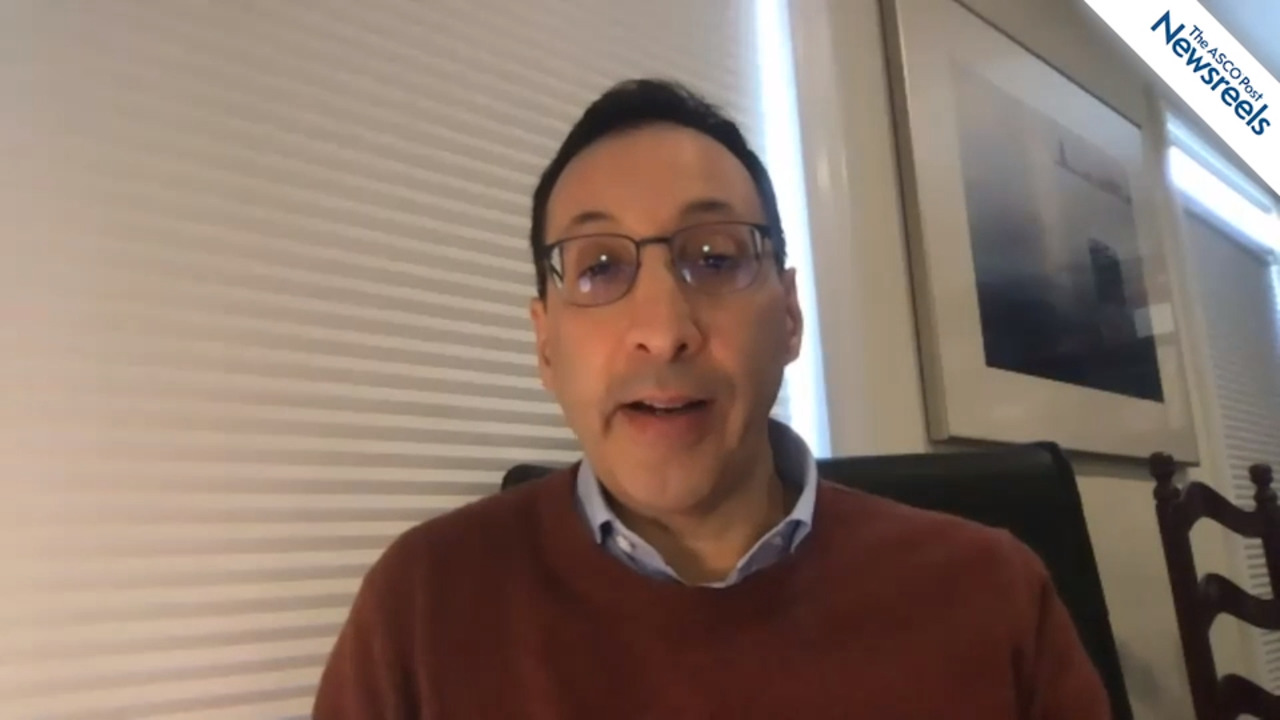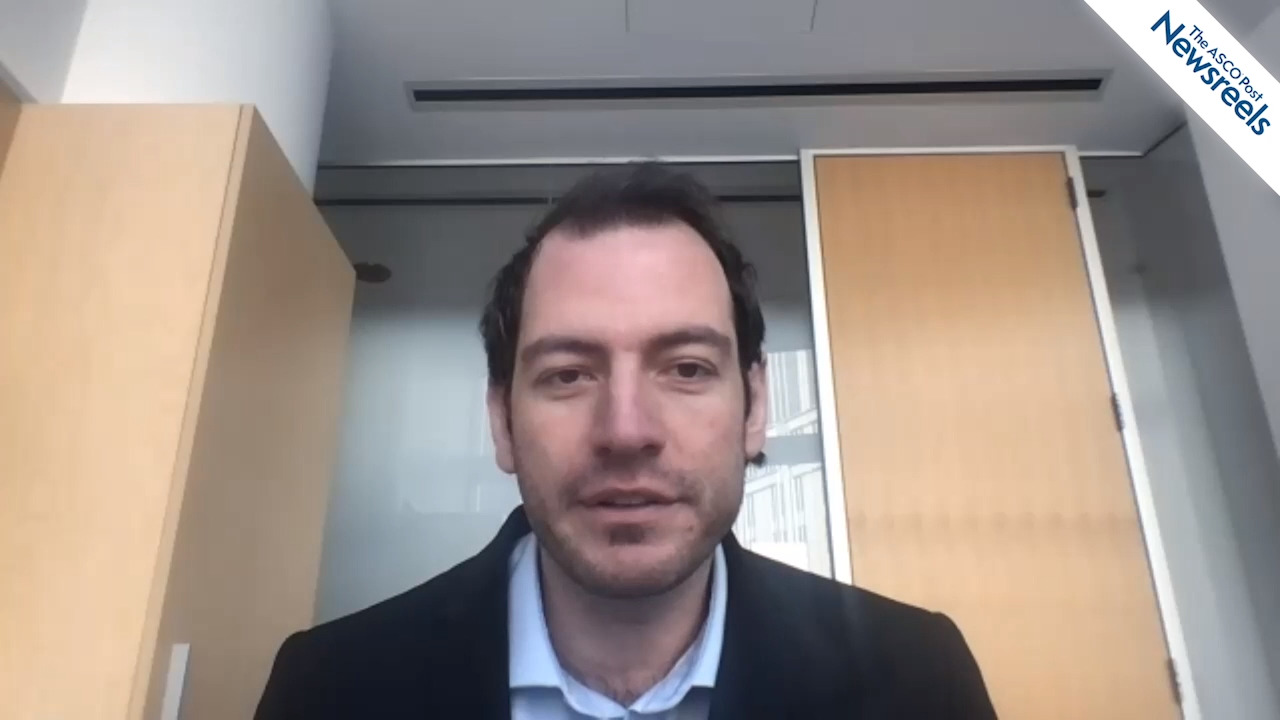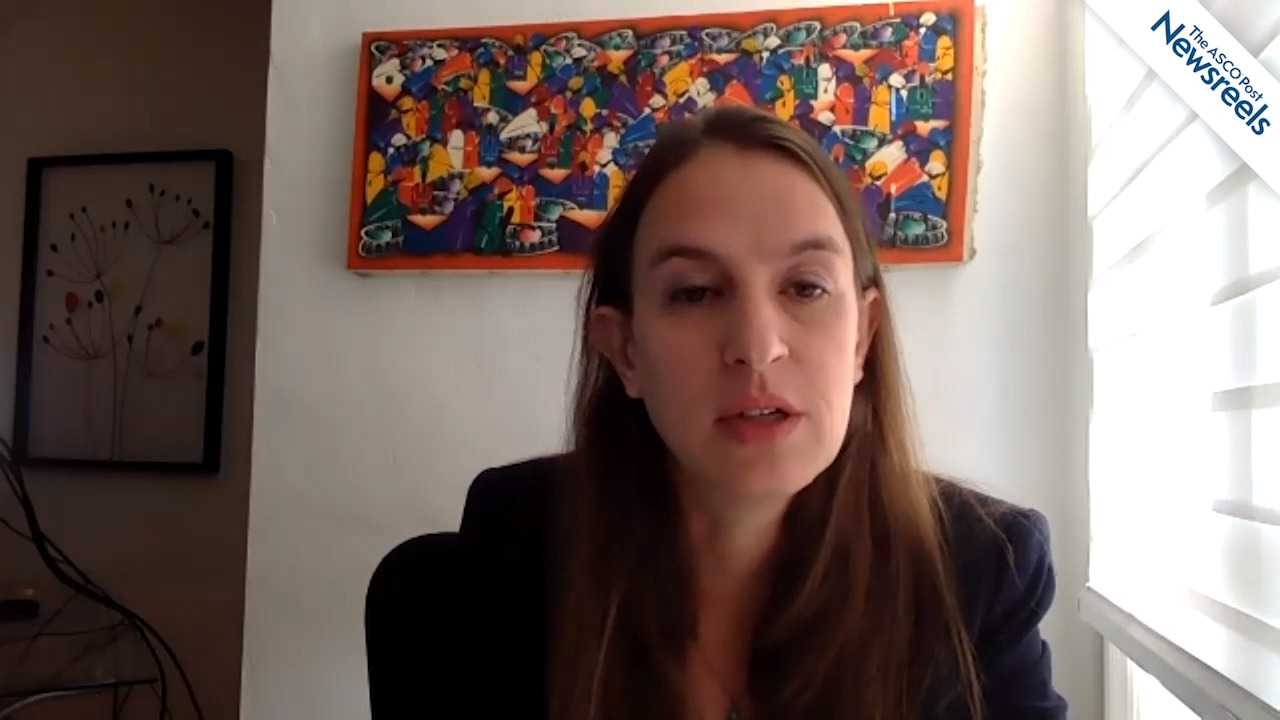Matthew S. Davids, MD, on CLL/SLL: New Data on Ibrutinib, Venetoclax, and Rituximab Therapies
2020 ASH Annual Meeting & Exposition
Matthew S. Davids, MD, of Dana-Farber Cancer Institute, summarizes three key studies from a session he co-moderated on ibrutinib plus venetoclax for first-line treatment of patients with chronic lymphocytic leukemia (CLL) and small lymphocytic lymphoma (SLL), long-term responses to these agents for relapsed and refractory CLL, and undetectable minimal residual disease following fixed-duration treatment with venetoclax and rituximab for CLL (Abstracts 123, 124, and 125).
The ASCO Post Staff
Steven M. Horwitz, MD, of Memorial Sloan Kettering Cancer Center, discusses data from the largest multicenter retrospective analysis of allogeneic hematopoietic transplantation, which supports its curative potential in patients with mature T-cell lymphoma, a group marked by poor survival and limited treatment options (Abstract 41).
The ASCO Post Staff
Christian Marinaccio, PhD Candidate, of Northwestern University, describes research he is conducting in the laboratory of John D. Crispino, PhD, which shows the loss of the tumor suppressor gene LKB1/STK11 facilitates progression of myeloproliferative neoplasms to acute myeloid leukemia (Abstract 1).
The ASCO Post Staff
Ann-Kathrin Eisfeld, MD, of The Ohio State University Comprehensive Cancer Center, discusses SEER data showing that patients with acute myeloid leukemia who are Black and younger than age 60 may have poor survival outcomes, a disparity that should be addressed and further studied to establish molecular risk profiles (Abstract 6).
The ASCO Post Staff
Tycel J. Phillips, MD, of the University of Michigan Rogel Cancer Center, discusses phase II data from the CITADEL-204 study, showing that patients with relapsed or refractory marginal zone lymphoma who were not previously treated with a Bruton’s tyrosine kinase inhibitor achieved rapid and durable responses with single-agent parsaclisib. Comparable results were also observed in patients with nodal, extranodal, or splenic disease (Abstract 338).
The ASCO Post Staff
Lena E. Winestone, MD, MSHP, of the University of California, San Francisco and Benioff Children’s Hospital, reviews different aspects of bias in treatment delivery, including patient selection for clinical trials; racial and ethnic disparities in survival for indolent non-Hodgkin diffuse large B-cell lymphomas; and end-of-life hospitalization of patients with multiple myeloma, as well as outcome disparities (Abstracts 207-212).





